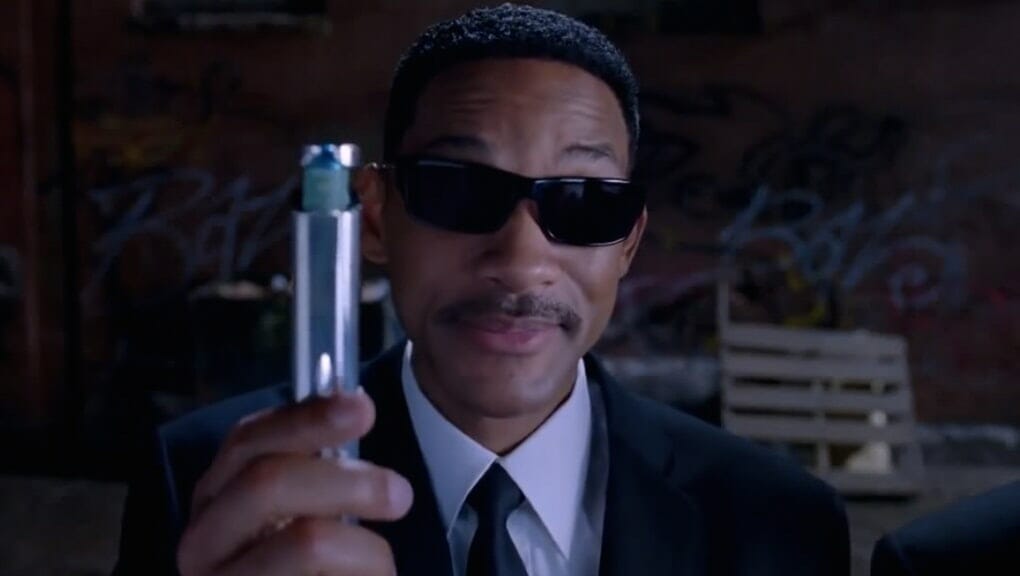The following report is from Inverse:
Memories are tricky and can comprise much more than our actual recollections.
Our minds can make memories out of stories we’ve heard, or photographs we’ve seen, even when the actual recollections are long forgotten. And, new research suggests, this can happen even when the stories aren’t true.
I find it so interesting, but also scary, that we base our entire identity and what we think about our past on something that’s so malleable and fallible.
Aileen Oeberst. Psychologist at the University of Hagen in Germany tells Inverse.
Oeberst is the first author of a study released Monday in the Proceedings of the National Academy of Sciences that examines false memories and what can be done to reverse them. False memories, the study suggests, are more than unsettling. When they take root, they can disrupt a courtroom — and the fate of the individuals there.
Necessary Background
One of the biggest sources of false memories, says Oeberst, is clinical psychologists who believe in repressed memories. This is the idea that a person who has experienced a traumatic event could selectively forget memories of their trauma.
It’s really well documented that what those people usually suffer from is to not be able to forget. They have flashbacks, they have PTSD, they cannot push it away. There’s not much evidence for repression.
Aileen Oeberst
But if a therapist says to a patient that their current symptoms suggest they may have, for example, been abused — and that if the patient doesn’t remember it, it still could’ve happened — this can trigger false memories.
If people try and search [for a memory] they usually find something.
Aileen Oeberst
These false memories become a major problem when they end up as evidence in a courtroom, which is why researchers are studying not just how they’re created, but how they can be identified and reversed.
In the new study, Oeberst and colleagues were able to successfully implant false memories in study subjects — and then reverse them.
What’s New
The psychologists implanted false memories in 52 subjects with a median age of 23, thanks to critical assistance from the subjects’ parents.
The parents identified events that had and had not happened to their kids — and generated two events that were plausible but had not happened. The researchers then asked the test subjects to recall each event, true or not, including details like who was present and when it happened.
They met multiple times; by the third session, most participants at least believed the false events had happened. More than half had developed actual false memories of them.
This wasn’t the first time researchers have demonstrated how easy it can be to implant false memories. But it was the first time they tried to reverse them — without revealing to the subjects what had happened.
They found two key methods helped participants differentiate their own real recollections from the false ones:
- Asking them to recall the source of the memory
- Explaining to them that being pressured to recall something multiple times can induce false memories
Why This Matters
Ultimately, the team found rich, false memories can mostly be undone. And they can be undone relatively easily.
If you can bring people to this point where they are aware of that, you can empower them to stay closer to their own memories and recollections, and rule out the suggestion from other sources.
Aileen Oeberst
You don’t need to know what the truth of the matter is, which is why they’re nice strategies.
It might be possible for people — prosecutors, police, or others — before they start prosecuting people to try out some of these strategies before entangling potentially innocent people in awful legal nightmares.
Elizabeth Loftus. False memory expert who was not involved in this study told Inverse
Oeberst and her colleagues didn’t completely eradicate the false memories. But they did get their occurrence back down to about the level of their first session, when they first mentioned the fake event — about a 15 to 25 percent acceptance rate. A year later, 74 percent of participants either rejected the false memories or said they had no memory of them.
Faulty memory may not matter in everyday life — if I tell you I had chicken last night instead of pizza, it may not matter.
But very precise memory does matter when we’re talking about these legal cases. It matters whether the bad guy had curly hair or straight hair or whether the car went through a red light or a green light.
Elizabeth Loftus
Abstract
False memories of autobiographical events can create enormous problems in forensic settings (e.g., false accusations). While multiple studies succeeded in inducing false memories in interview settings, we present research trying to reverse this effect (and thereby reduce the potential damage) by means of two ecologically valid strategies. We first successfully implanted false memories for two plausible autobiographical events (suggested by the students’ parents, alongside two true events). Over three repeated interviews, participants developed false memories (measured by state-of-the-art coding) of the suggested events under minimally suggestive conditions (27%) and even more so using massive suggestion (56%). We then used two techniques to reduce false memory endorsement, source sensitization (alerting interviewees to possible external sources of the memories, e.g., family narratives) and false memory sensitization (raising the possibility of false memories being inadvertently created in memory interviews, delivered by a new interviewer). This reversed the false memory build-up over the first three interviews, returning false memory rates in both suggestion conditions to the baseline levels of the first interview (i.e., to ∼15% and ∼25%, respectively). By comparison, true event memories were endorsed at a higher level overall and less affected by either the repeated interviews or the sensitization techniques. In a 1-y follow-up (after the original interviews and debriefing), false memory rates further dropped to 5%, and participants overwhelmingly rejected the false events. One strong practical implication is that false memories can be substantially reduced by easy-to-implement techniques without causing collateral damage to true memories.
AUTHOR COMMENTARY
If you have ever seen the sci-fi comedy film series “Men in Black,” you might recall their tool called the “mind eraser.” They held up a pen-like object that flashed a bright light and wiped people’s memories of the men in black’s existence, the current event the victim or interrogated were involved with, or their entire life’s worth of memories and experiences. This is kind of like that in a sense.

Let no man beguile you of your reward in a voluntary humility and worshipping of angels, intruding into those things which he hath not seen, vainly puffed up by his fleshly mind,
Colossians 2:18
[3] For a dream cometh through the multitude of business; and a fool’s voice is known by multitude of words. [7] For in the multitude of dreams and many words there are also divers vanities: but fear thou God.Ecclesiastes 5:3, 7
I mention these verses because modern science, especially psychology and psychiatry, completely remove sin from the equation. There are no spiritual things at work: it is all chemicals in the body and neurons firing in the brain. So the concept of someone who simply just lies and repeats that lie to themselves can get misconstrued with their diagnostics because sin does not exist in their minds.
The sales pitch for this of course is spun in a positive light, but this is how all wickedness and obstruction of freedoms are brought in. Now if the big tech and government elites want some memories removed and replaced, it has become easier to do – eventually adopted on a broader scale.
Some of you may have heard of MK-Ultra, and this is essentially one of the ways people can programmed and the handler can make their “puppets” say and do a lot of things. Look into it if you do not believe me.
In light of these new developments, I have made the assertion that these Covid vaccines could be programming people to accept “post-hypnotic suggestions.” In other words, the body and mind could be altered that’ll make people act a certain way, think a certain way. We have noted that Moderna has openly referred to their experimental mRNA vaccines as “software” and an “app.” Could this mind-control technology help in this goal somehow? I am not sure, but I thought I’d pose the theory.
The WinePress needs your support! If God has laid it on your heart to want to contribute, please prayerfully consider donating to this ministry. If you cannot gift a monetary donation, then please donate your fervent prayers to keep this ministry going! Thank you and may God bless you.







